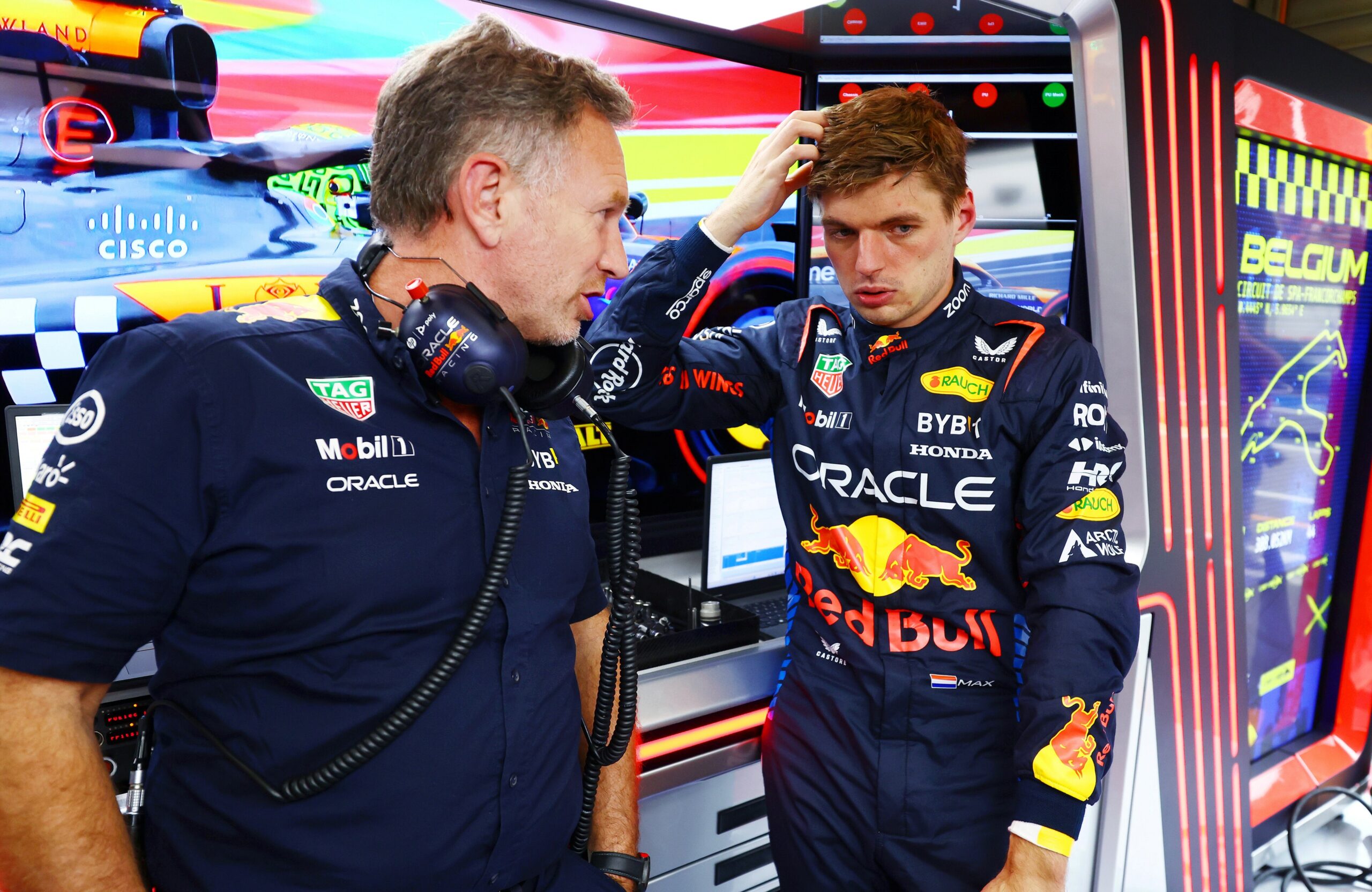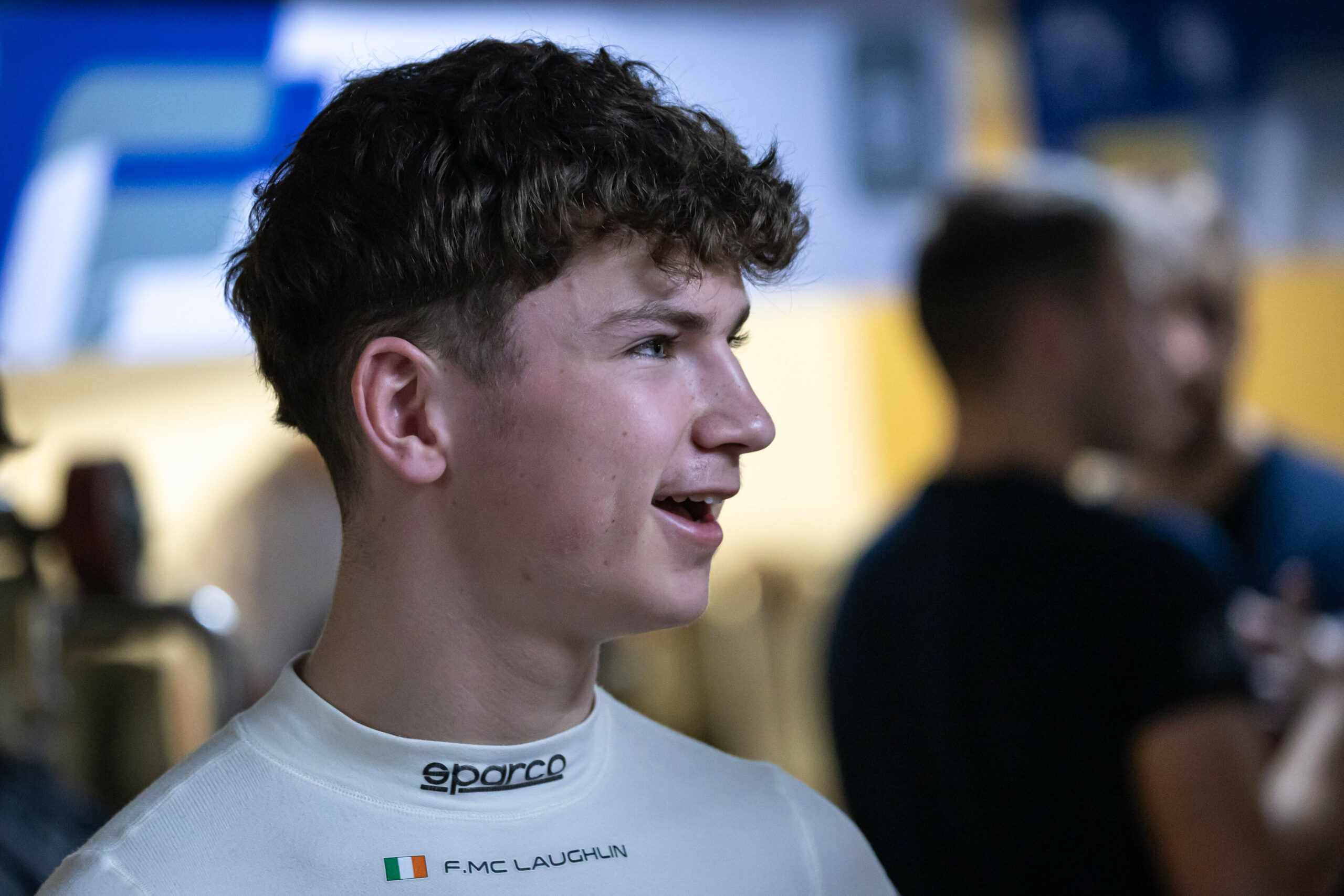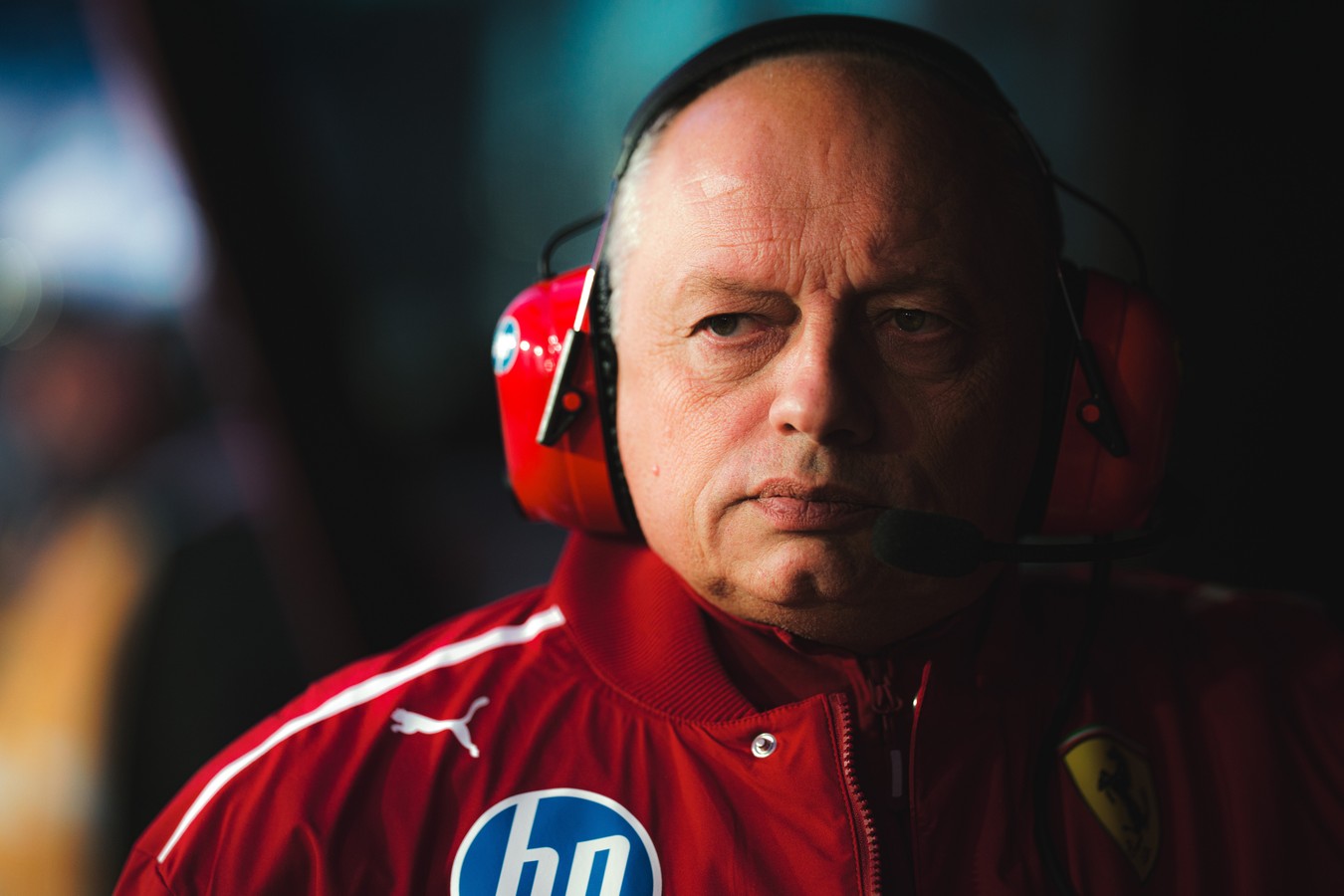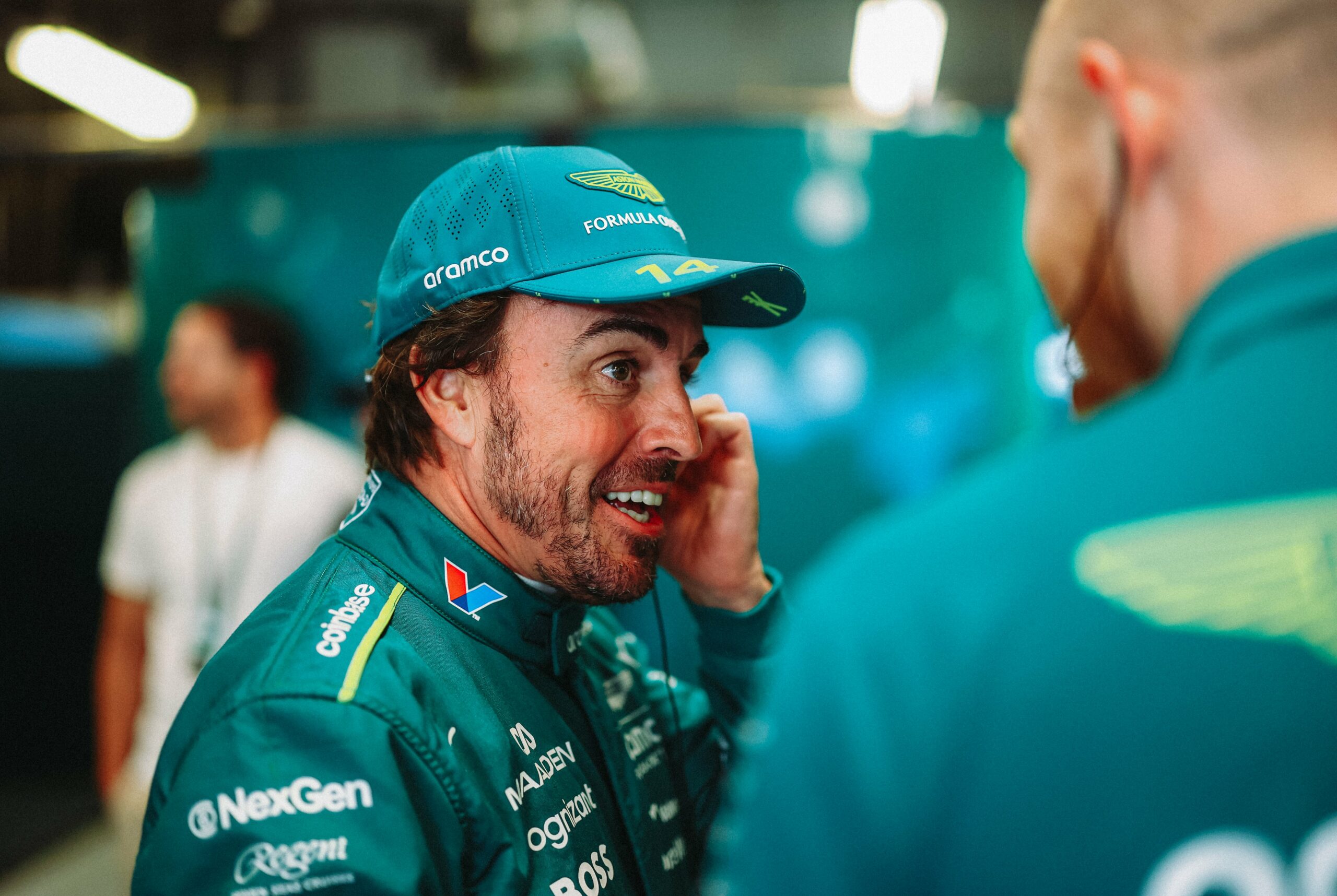Red Bull’s race on Sunday played out very different for both their drivers. On the one hand Max Verstappen extended his lead in the drivers’ world championship over Lando Norris, whereas Sergio Pérez saw himself tumbling down the order from second on the grid to eighth at the finish. Not entirely what teamboss Christian Horner hoped for, he explained after the race.
“Starting on the front row, our objective really was, pre-race, we felt that third and fifth would be achievable. We achieved the fifth, but we didn’t achieve the third. So, we obviously need to go through the data to understand where [Checo’s] loss of pace was.
“Based on his starting position, we didn’t envisage finishing eighth from second on the grid.“
The Mexican driver struggled with his pace throughout the race, and did just ten laps for his second stint, which raised the question whether his strategy could have been more optimal.
“I think we’ll have a look at it,” his teamboss explained. “Bearing in mind Russell did a one-stop, it shouldn’t really have affected him too much. So at that point you’re looking at, OK, what’s our options, how do we put pressure on the cars ahead? It obviously gave him track position to Carlos Sainz, but unfortunately it didn’t play out.“
The race in Spa-Francorchamps developed completely different from what anyone had expected. Even Verstappen himself predicted a race where tyre degradation would dominate the strategy, buteventually a one-stop race by George Russell proved to yield the optimal result. That is, until the Mercedes driver was disqualified for having an under-weigth car.
“I don’t think anybody had a crystal ball that one stop was going to be the strategy that worked out,” Horner said. “We were running just behind George on the same tyre, having pitted on the same lap. With the set of mediums we felt, actually that’s not a bad option to have because the degradation was lower than we thought.
“I don’t think George set off in that race expecting to do a one stop, but congrats to him and Mercedes for making it work. I don’t think even they thought it was potentially going to work at one point.
On Friday Red Bull and McLaren were well in the mix on long run pace, but coming Sunday it was Mercedes who had the best package, much to the surprise of Horner.
“It was a strange race because all the data from Friday pointed towards graining, high deg, the new surface here. Whether it was due to the temperature or whatever, it was actually the complete inverse where a one stop won the race. I don’t think anybody could have envisaged that, but I thought Max did a good job today.
“Mercedes looked out of it on Friday, and then their race pace looked very good today. The big unknown is the tyres, different conditions, different track surface, new asphalt.
“Going from 11th to fifth, finishing ahead of his nearest championship rival who started fourth, and only seven seconds from the leader. In what is now a very tight grid, I thought that was the optimum, extending his lead in the drivers’.“
Part of Verstappen’s expected climb through the field was hindered by the lesser ability to overtake, and thus the greater impact dirty air had on the performance.
“We were always in dirty air, dirty air, dirty air,” Horner said. “If we’d have started on the pole, potentially you could have won it. But we’ve got that engine penalty in the bag now, which puts us in a better place after the break.
“I think [overtaking was more diffucult], and I think shortening that DRS, actually on the last lap I think we were quite grateful for it, but it made overtaking much harder.
“I think those 75 metres on the run up to Turn 5 was definitely… You could see there wasn’t a lot of overtaking going on today.“





